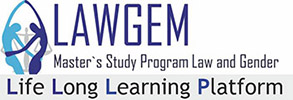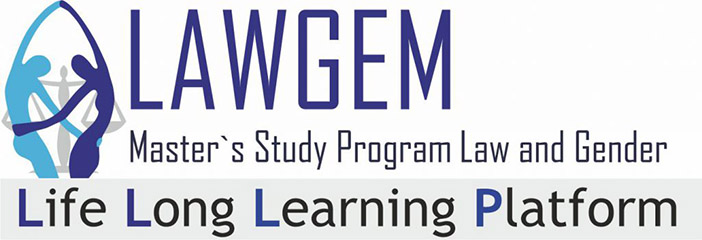Faculty of Law University of Belgrade in the cooperation with the OSCE Mission to Serbia organized the Spring School/Pilot Master – Law and Gender. This Spring School was based on the project LAWGEM and served as a kind of the pilot practicing of the future master`s study program Law and Gender. It covered all courses contained in this master`s study program curriculum, and the reading materials consisted to a great extent of the books published within the LAWGEM project. The School was organized in a hybrid form – in person at the Faculty of Law University of Belgrade and online, with 69 participants (students of undergraduate, master and PhD level), both from Serbia and other countries around the world (Albania, Belarus, Bosnia and Herzegovina, Brazil, China, Croatia, France, Germany, India, Iran, Italy, Montenegro, Russia and Vietnam). It is certain that participants of this School have gained valuable knowledge which will help them on their academic path and in their professional careers. On the other hand, the Spring School represented an excellent preparation of lectures and pedagogic experiences of the scholars from the University of Belgrade Faculty of Law for the future conducting the master’s study program Law and Gender.
The course Public Policies and Gender Equality which was delivered by Professor Dr. Branko Radulović firstly dealt with the issue of notions of public policy and gender mainstreaming, as well as the evolution of a modern tax system from a gender perspective. The mentioned was discussed with the goal of understanding the meaning and goals of gender sensitive public policies. Also, the course addressed the issue of tools in terms of measuring gender inequality, but also gender budgeting which integrates a gender perspective into the budgetary process, aiming to achieve gender equality. The lecture also focused on the equality plans that are a set of objectives and measures, taken and approved by a government, that must be carried out at different administrative and governmental levels and within a specific period, ranging from two to five years. In relation to the mentioned, the issue of impact evaluation in gender policies was dealt with thoroughly. Finally, the course addressed the issue of gender equality in relation to environmental issues, which is of great importance in today’s world where such issues intertwine and reflect one on another.
Public Policies and Gender Equality 1: Meaning and Aims, Gender Sensitive Monitoring and Programming
Public Policies and Gender Equality 2: Gender Equality and Environmental Issues

